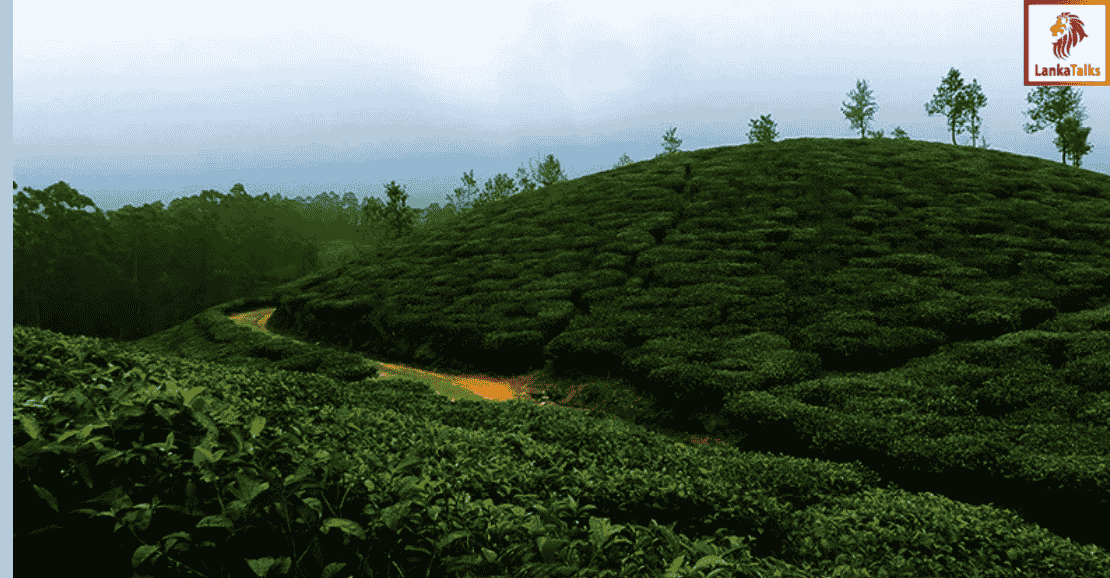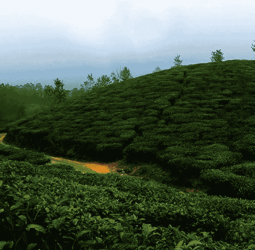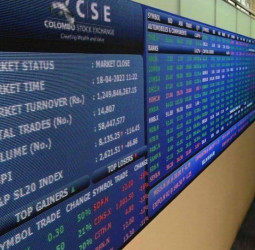Sri Lanka’s tea auction prices declined for a second consecutive week in mid October, with drops exceeding Rs. 100 per kilo as buyers reduced purchases. This reduction in demand is attributed to buyers attempting to avoid holding stock for which Value-Added Tax (VAT) must be paid upfront.
Industry sources note that the cash flow issues as well as the impact on smallholders will be substantial. Further, if not reimbursed in time, they anticipate a major impact on the industry in the long term.
At the auction held on 14 and 15 October, in the Below Best category, Broken Orange Pekoe (BOP) in the high-price bracket declined by Rs. 50 per kg and more, whilst the corresponding Broken Orange Pekoe Fanning (BOPF) price too was irregular.
At the lower end of the market, BOP declined by Rs. 20-30 per kg, whilst the corresponding BOPF price was irregular and tended to be easier. For 14 and 15 October, auction offerings totalled 5.5 million kg, with fair general demand.
Rs. 1 b extra cash needed per week
Speaking to The Sunday Morning Business, Sri Lanka Tea Factory Owners’ Association Chairman Lionel Herath noted that since buyers had to pay the tax upfront, they would need to pay an extra amount, totalling approximately Rs. 1 billion more per week, based on historical records of tea quantity and sales.
This situation, he noted, might require borrowing, as it constituted additional working capital. Herath further said that this could lead to a decline in the market, since the extra cost could be passed down to the producer.
If the reimbursement was made promptly, Herath noted, it would not be problematic for buyers. However, delays in reimbursement could lead to substantial impacts, especially for small-scale growers, who might opt out of the business if it is no longer viable.
“As the Inland Revenue Department (IRD) has given assurance on the reimbursement, the industry will have to wait and observe. At the moment, there is no substantial impact on tea prices. Any adverse effects will be faced if not reimbursed within a shorter period not exceeding 30 days,” he added.
Moreover, commenting on the improvements required in the tax refund system, Herath highlighted the need to move to an improved and electronic refunding system.
3–4% auction price decline
Moreover, Imperial Teas Group Chairman and Managing Director Jayantha Karunaratne, a former President of the National Chamber of Exporters (NCE), observed that the tea industry was already affected by the Simplified Value-Added Tax (SVAT) removal, as evidenced by a decline in auction prices of around 3–4%.
In addition, he stated that the cash flow issue would impact operations once buyers started paying VAT, potentially leading to a reduction in either the buying price or the quantity purchased. Thus, with demand expected to decrease, he noted that prices were also expected to fall.
“When prices decrease at the auction level, growers will receive reduced payments. While it will take a few more weeks to really observe the impact, it will have a heavy impact on all sectors of the industry,” he added.
Karunaratne also explained that based on calculations done, the tea industry would require at least an additional amount of approximately Rs. 1 billion per week (based on the average auction price of Rs. 1,200 and five million kilos per week) and around Rs. 4–5 billion monthly in extra cash to sustain current operations following the removal of the SVAT.
“It’s likely that exporters will have to borrow this money from banks at a cost, impacting the prices. The IRD refund period of 45 days is from the date of payment. The tea industry pays VAT within one week. If there are delays, it will significantly impact the industry.
“The impact will be felt properly in November and December. While larger buyers will be able to manage, smallholders will not be able to operate and will likely face bankruptcy,” he added.
Meanwhile, speaking to The Sunday Morning Business, industry veteran and former Chairman of the Sri Lanka Tea Board (SLTB) Niraj de Mel noted that the very first auction following the removal of the SVAT did not show a notable downward trend in tea prices, but that it began to show a noticeable drop in the second auction. He also observed that the drop would only reach a maximum of 5–7%, provided the Government released the refunds on time.
“As there is an impact on cash flows, the implications for the tea market could be multifold. Apart from a market drop, the freedom allowing a buyer to pay and purchase a larger quantity of tea, taking advantage of a market situation or buying freely, would be restricted to a certain extent as a result. This might also bring about several market forces, including factors such as speculation buying,” he added.
Refund concerns
Moreover, de Mel pointed out that the current period was crucial, as the winter season was approaching for many foreign importers. Thus, the full impact of the VAT imposition might not be reflected yet, since demand could remain at a fairly acceptable level and the impact might not be fully seen until the winter purchasing is complete.
On the other hand, he also explained that there would be a serious impact in the long term unless the refunds were made on time as promised. He added that successive governments in the past had not been able to refund promptly, with certain large buyers not receiving refunds for even 4–5 years.
Impact on smallholders
Many experts have highlighted the potential impact on smallholders especially. As of the beginning of 2025, Sri Lanka’s smallholder farmers contribute nearly 75% of national production. However, over 60% of them own less than half an acre of tea land.
De Mel also addressed the impact on smallholders, the majority of whom did not even own 10 acres, and pointed out that this was a trickle-down effect. The tax and the amount of interest paid when borrowing funds for the purpose are cost factors that will directly reflect on the market. In turn, the resultant drop at the auction level will be reflected in the payments made by factory owners to smallholders.
He also noted that the amount already paid to these smallholders was not substantial, adding that a further drop would be passed down to them.
“In the long term, the decreased earnings could impact different aspects, such as fertiliser application, which won’t be healthy for plant growth. In the long term, these factors will affect revenue-earning capacity as well, impacting lifestyle.
“Therefore, I believe the smallholder sector requires special focus. The Government must come up with a separate concrete plan for them, since their circumstances are different. While they supply 75% for tea manufacturing, the sector is also plagued by many inhibitions that require structured addressing,” he added.
Furthermore, he explained that most smallholders applied fertiliser depending on the factory, as the factory supplied the fertiliser, the agreed cost of which would be deducted from the payment made to the smallholder. Hence, de Mel noted that in addition to these cost factors affecting smallholders, the input to the sector would also be significant if they were further impacted.
In addition, in order to ensure the overall growth of the industry, de Mel highlighted the need for a comprehensive plan alongside massive investment.
“Beyond a surface-level approach to the industry, there are far greater issues that need to be addressed. The industry has been starved in terms of nutrition due to the wrong decisions taken in the last few years with regard to fertiliser. The soil has not been sufficiently rehabilitated and there has been excessive chemical fertiliser applied over the years. In the long term, there is a requirement for a grand, comprehensive study and a plan, which would require a substantial investment,” de Mel added.
Exporter impact
Meanwhile, speaking to The Sunday Morning Business, the Tea Exporters Association (TEA) noted that the impact of the VAT was already being felt by exporters.
It noted that the initial impact of the VAT had been felt by tea exporters as they needed to find additional funds for the purchase of tea at the weekly tea auction. As per tea auction regulations or bylaws, buyers or exporters should settle the full amount of the value of tea purchases in six days with tea brokers, while the latter should transfer these payments to the sellers by the eighth day.
The TEA explained that tea exporters did not receive credit facilities when purchasing tea. If buyers or exporters do not comply with this rule, they are penalised by the Colombo Tea Traders’ Association (CTTA), which conducts the weekly tea auction.
According to the TEA, the additional cash flow requirement of exporters is about Rs. 1 billion per week or Rs. 4 billion per month. Hence, exporters cannot add this to their cost and pass it on to foreign buyers, since Ceylon Tea would then be non-competitive in the global market.
Both Kenya and India do not impose VAT on tea exports. Sri Lanka already earns an average of $ 4 per kilogramme of Ceylon Tea at the auction compared to $ 2–2.50 per kg for Indian and Kenyan tea.
“With a decline in our tea crop, we now account for only 4–5% of the global tea production and have little leverage to command higher prices than what is received currently. In the past, tea exporters purchased tea for stocks without having any orders in hand. This was witnessed especially during the Dimbula, Uva, and Nuwara Eliya tea quality seasons. They have now reduced such purchases due to the cash flow issue. The latter issue will also affect exporters’ investments in brand marketing in foreign markets.”
Furthermore, the TEA noted that exporters depended on bank financing for additional cash flow requirements and that they were compelled to pass the additional cost down the supply chain when buying the tea. It further pointed to the effect on tea prices and growers, as witnessed at last week’s tea auction. For example, when the average auction price comes down by Rs. 50 per kg, tea growers will receive Rs. 10 less per kg for their green leaves.
Smallholders to face the biggest blow
Commenting on the Small and Medium-sized Enterprises (SMEs) involved in the industry, the TEA noted that SME tea export companies, which account for 15–20% of annual tea exports, would find it difficult to survive as their ability to borrow funds from the banks was comparatively limited.
Accordingly, it will also affect their ability to pay better prices at the tea auction. This may reduce competition at the tea auction and also discourage new companies coming into the export business.
“More than 60% of tea smallholder farmers who earn less than Rs. 25,000 per month will see a decline in their income with the depressed tea auction prices. Needless to say, their living conditions will deteriorate over time, and the possibility of farmers moving from tea cultivation to other crops due to reduced income cannot be ruled out. In reality, the 480,000 tea smallholder farmers will be hit the hardest from the imposition of an 18% VAT on the tea industry.”
Moreover, The Sunday Morning Business learns that the TEA had approached all relevant Government officials from the SLTB to the President’s Office requesting that SVAT be continued or that tea be exempted from VAT payment, as done for other agricultural products under the unprocessed agriculture products classification.
According to TEA, about 93% of tea production is exported and therefore it does not make sense to collect VAT on this export volume and refund exporters in 45 days. The buyers for the local market (7% of annual tea production) pay the VAT with no resultant revenue loss for the Government.
“Tea exporters can submit the claims for VAT refunds at the end of each month (30 days after the purchases), and if the claims are processed in 45 days, it effectively takes a minimum of 75 days for a company to receive VAT refunds. At any given time, the IRD will hold on to Rs. 10–12 billion of VAT refunds due to the tea exporters. So the matter concerning cash flow will become a permanent financial issue for tea exporters.
“Although the IRD has informed that the VAT will be refunded in 45 days, tea exporters are concerned over their ability to do this in the long term. The estimated VAT refunds due to tea exporters for the 2015–2025 period are over Rs. 1.3 billion (VAT on other inputs like packaging materials). The best the Government can do for the tea industry at this moment is to exempt the sector from VAT payment.”
SLTB stance
Meanwhile, speaking to The Sunday Morning Business, SLTB Chairman R.K. Obeyesekere said that there had been no price dip at the last auction, except for the dust grade which had dropped by around Rs. 50 per kilo, noting that all the main grades had been sold at last (auction) levels.
He noted that the dip in the price of the dust grade could be attributed to weaker demand from local buyers who had likely stocked sufficient quantities prior to the implementation of the VAT.
“The anticipated massive price drop due to the abolition of the SVAT has not taken place. Furthermore, my personal view is that while there could be a degree of cash flow strain on exporters as a result of incorporating VAT into the costing, the slight dip in prices witnessed during the previous week is temporary.
“However, it is important to support exporters, as this is an additional burden on them. I believe the IRD will expedite the reimbursement of VAT, and hopefully, the impact will be lessened,” he added.



 Natasha
Natasha






